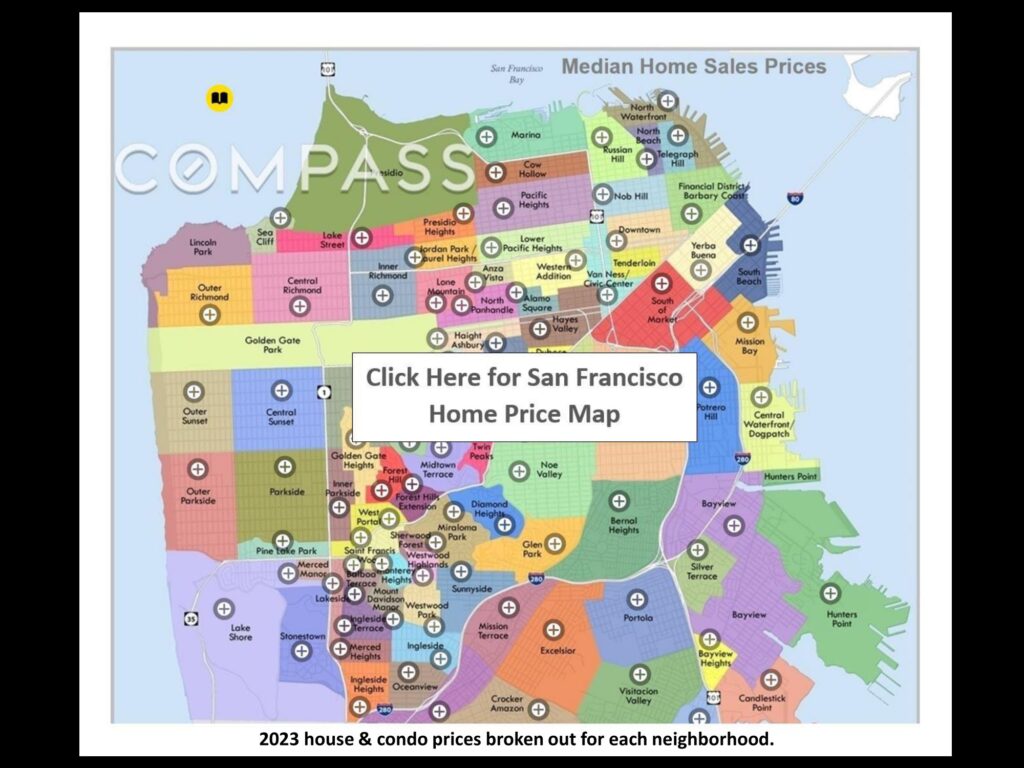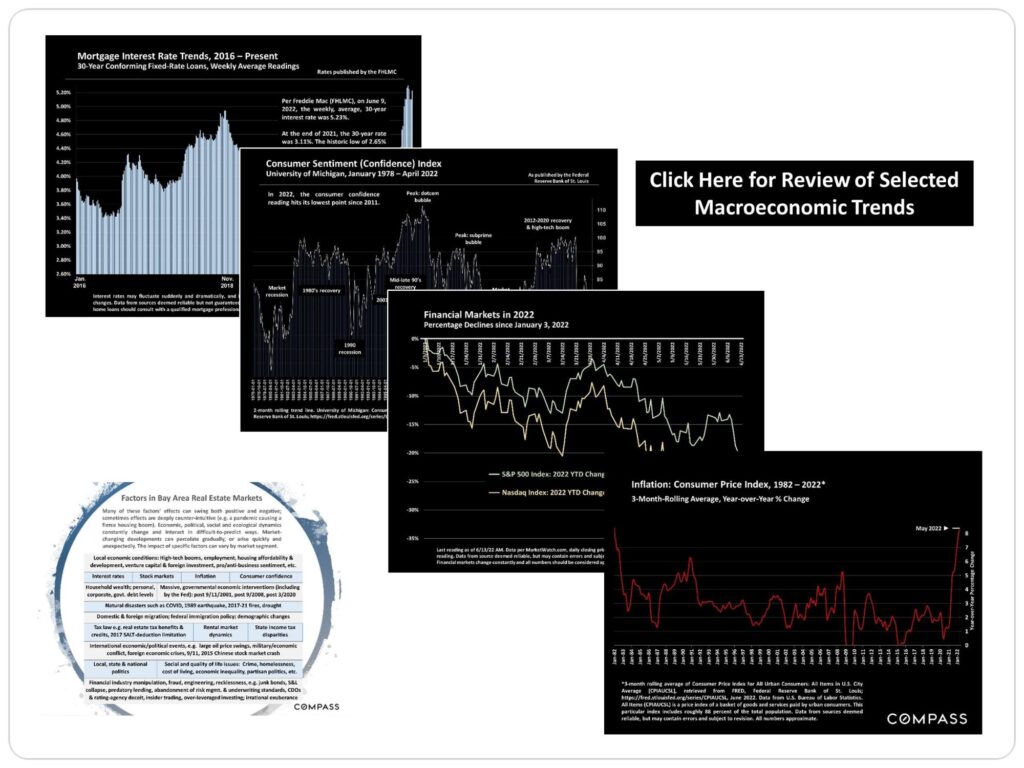San Francisco Real Estate Market May 2023 Report

The Spring Market Continues to Recover
The specifics for San Francisco real estate market will be covered in great detail within this report. But looking at the
overall Bay Area, buyer demand has continued to rebound from its late-2022 nadir. Though mortgage
applications are still well down year over year, many buyers have accepted higher interest rates as the
new normal and decided to move forward – and, in the last 2 months, rates have been trending
downward. A significant minority of buyers are paying all-cash. Open houses are seeing increased
traffic, more listings are selling, and selling more quickly with multiple offers. Median sales prices
have generally been ticking back up in 2023, though still down across the Bay Area from the market
peak last spring. San Francisco was more negatively affected by the pandemic – with lower rates of
appreciation during the pandemic boom – and due to its specific economic circumstances has typically
seen somewhat larger price declinessince the market shifted in mid-2022.
Even with the increase in demand, sales activity remains far below last spring due to a number of
economic and supply constraints. While increasing from mid-winter lows – with some very big sales
occurring – luxury home sales volumes have generally seen larger declines as compared to the peak of
the pandemic boom, when luxury sales often hit spectacular new highs.
The number of new listings has also dropped from historic norms. This is mostly ascribed to the
“mortgage lock-in effect,” i.e. owners with very low, long-term, fixed-rate mortgages are reluctant to
sell to then buy at much higher prevailing rates. This decline in new listings has major ramifications for
supply and demand dynamics, and increases pressure on prices even in a reduced activity
environment.
Some uncertainty clearly continues with inflation, interest rates, stock markets, bank crises, high-tech
layoffs, and now, as of early May, federal debt-limit negotiations. But, so far, the 2023 housing market
has mostly been moving in a positive direction.
Report created in good faith with data from sources deemed reliable, but may
contain errors and subject to revision. Please see notes at end of report.

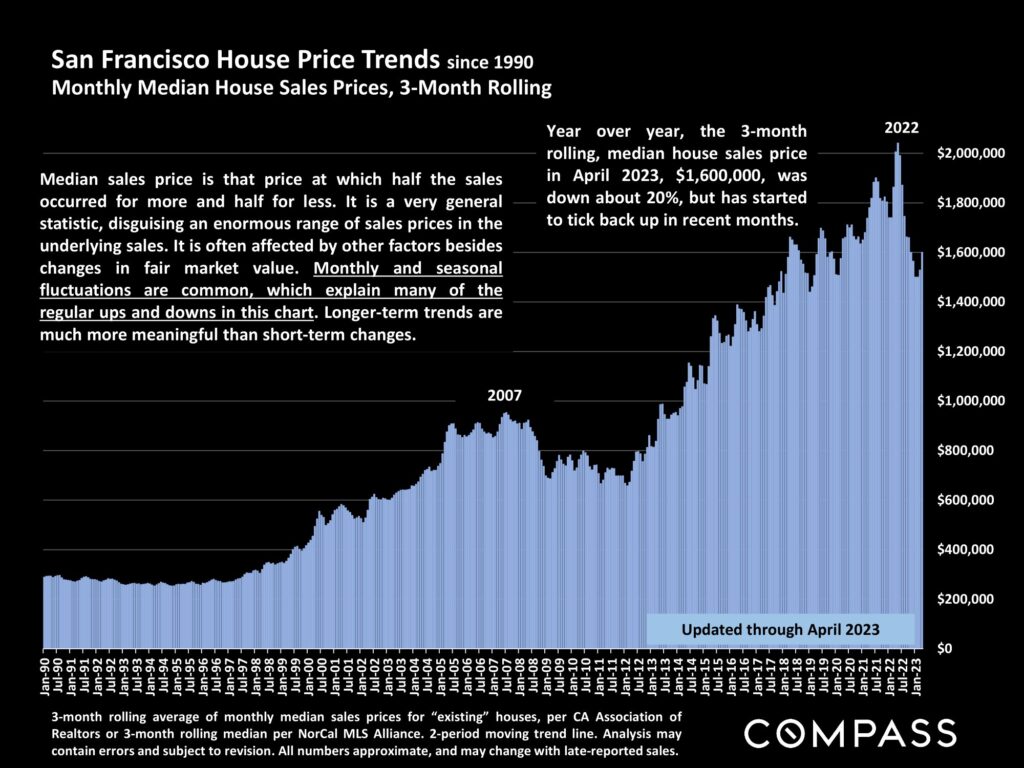
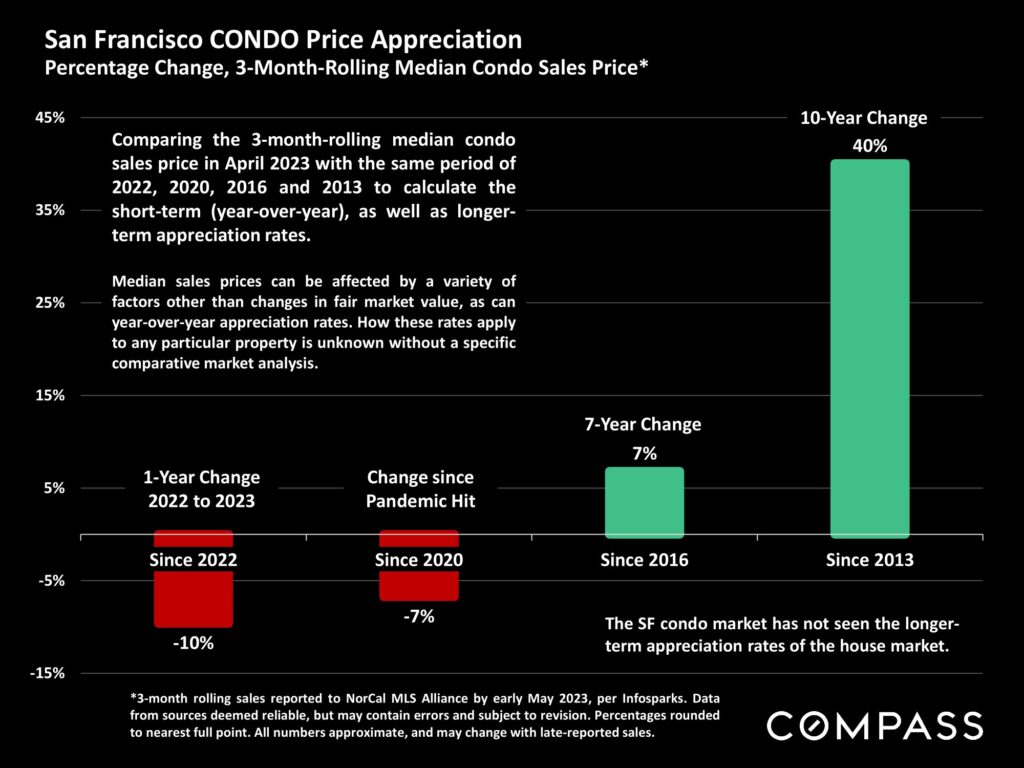
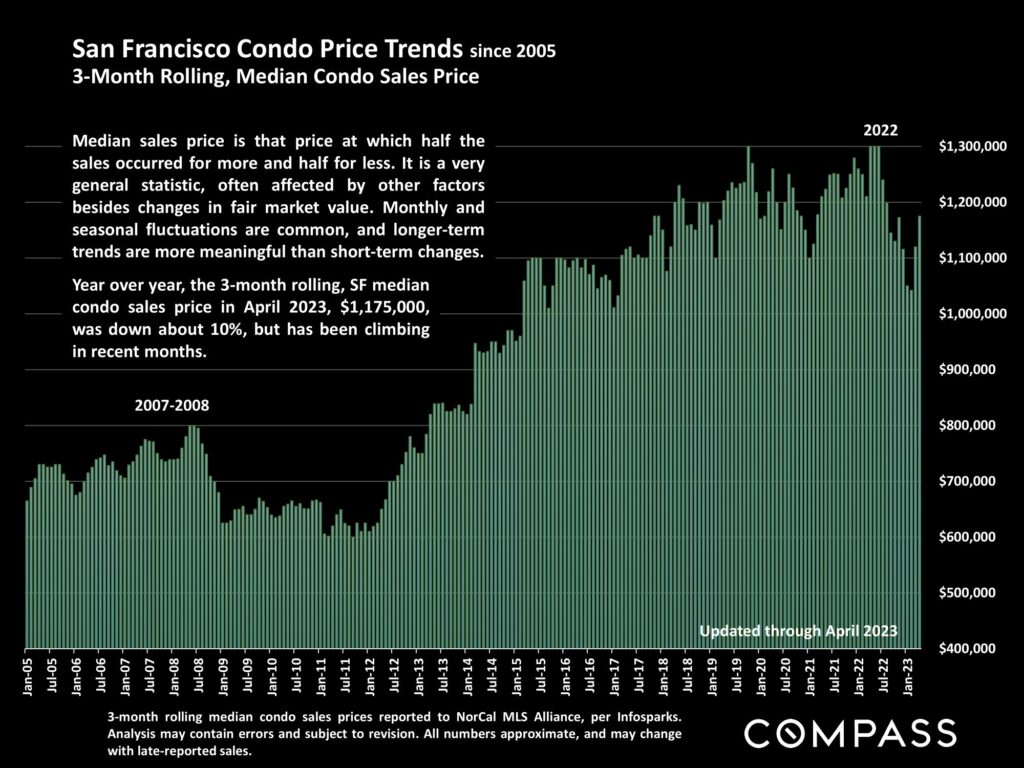
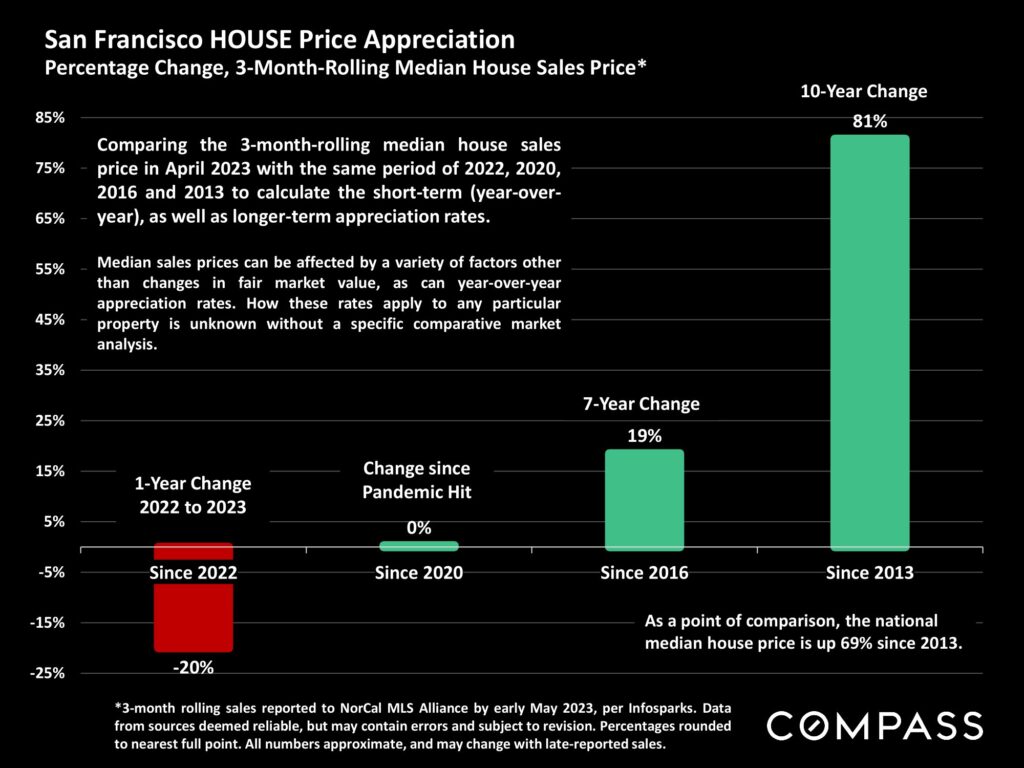
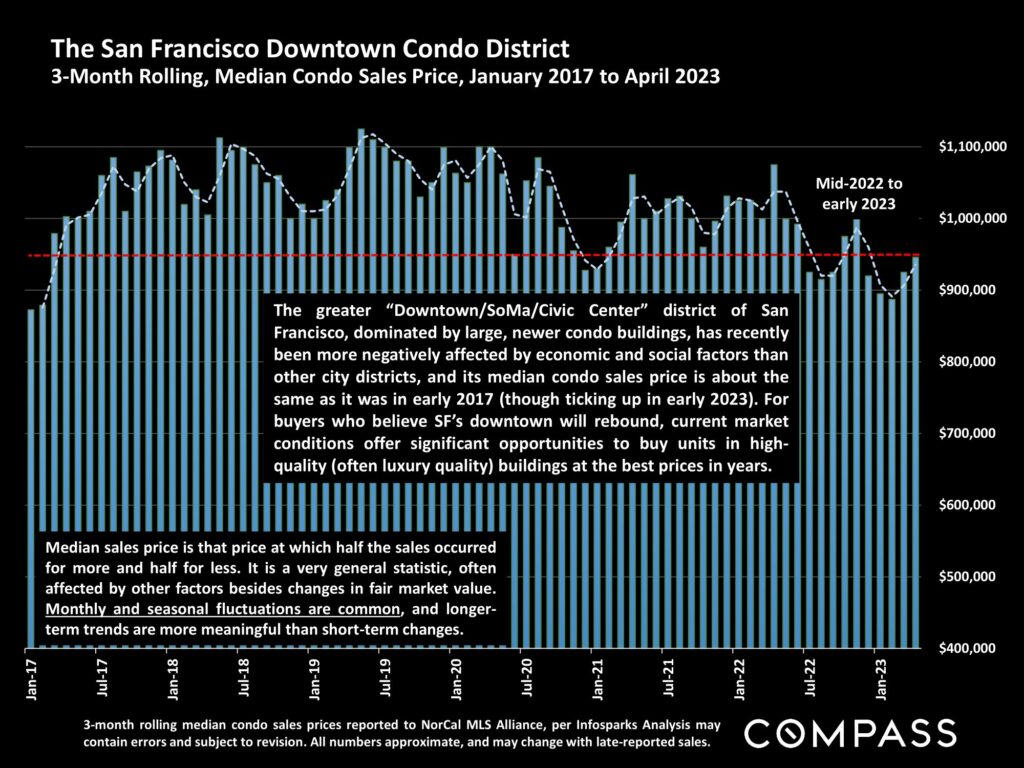
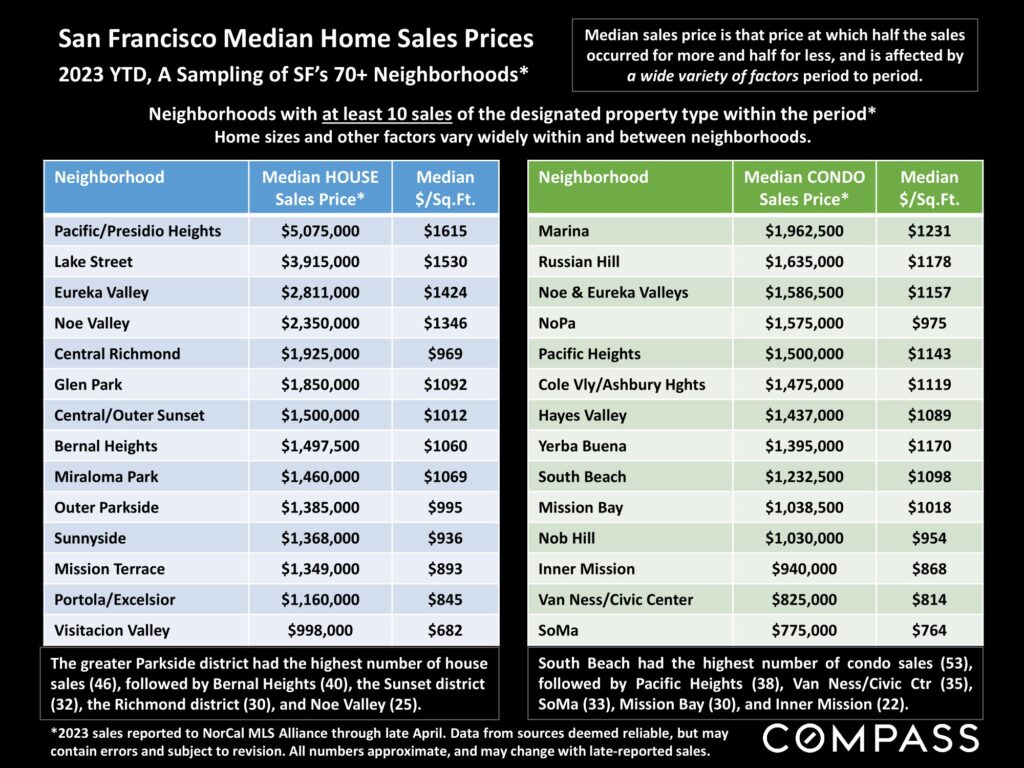

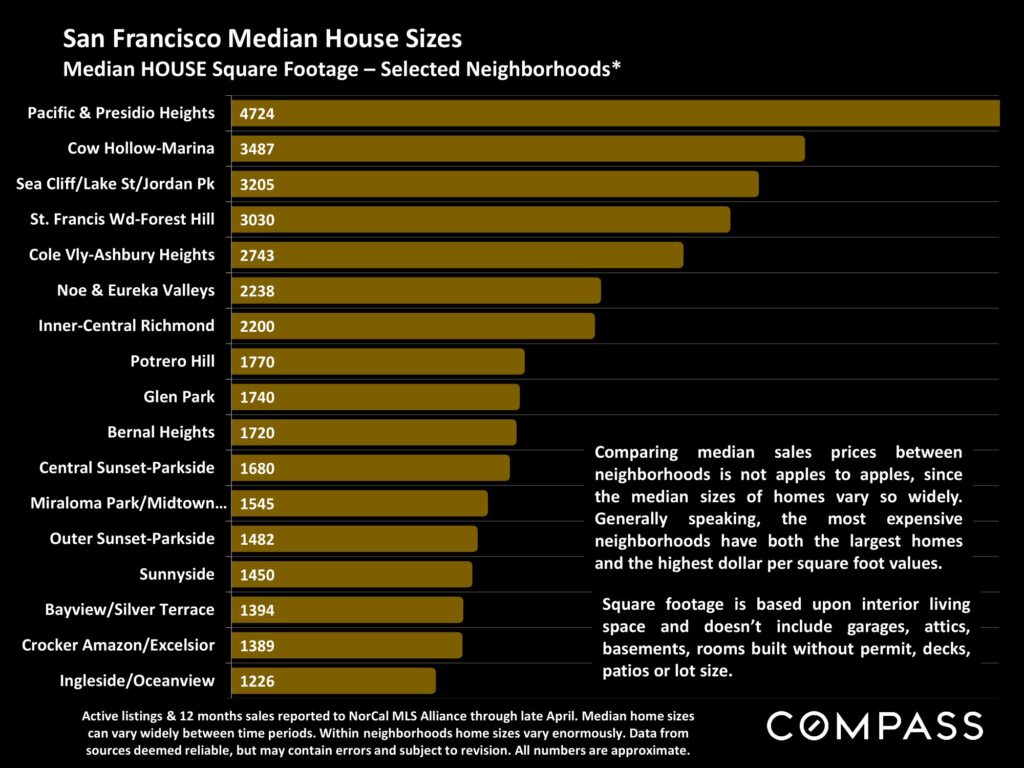
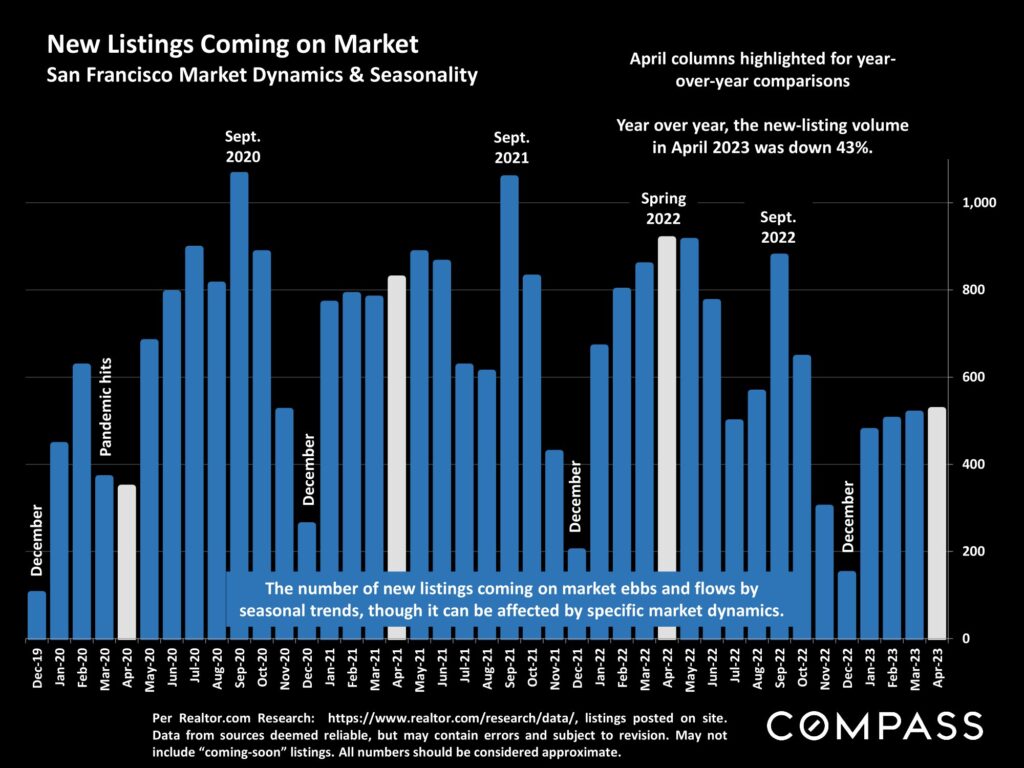
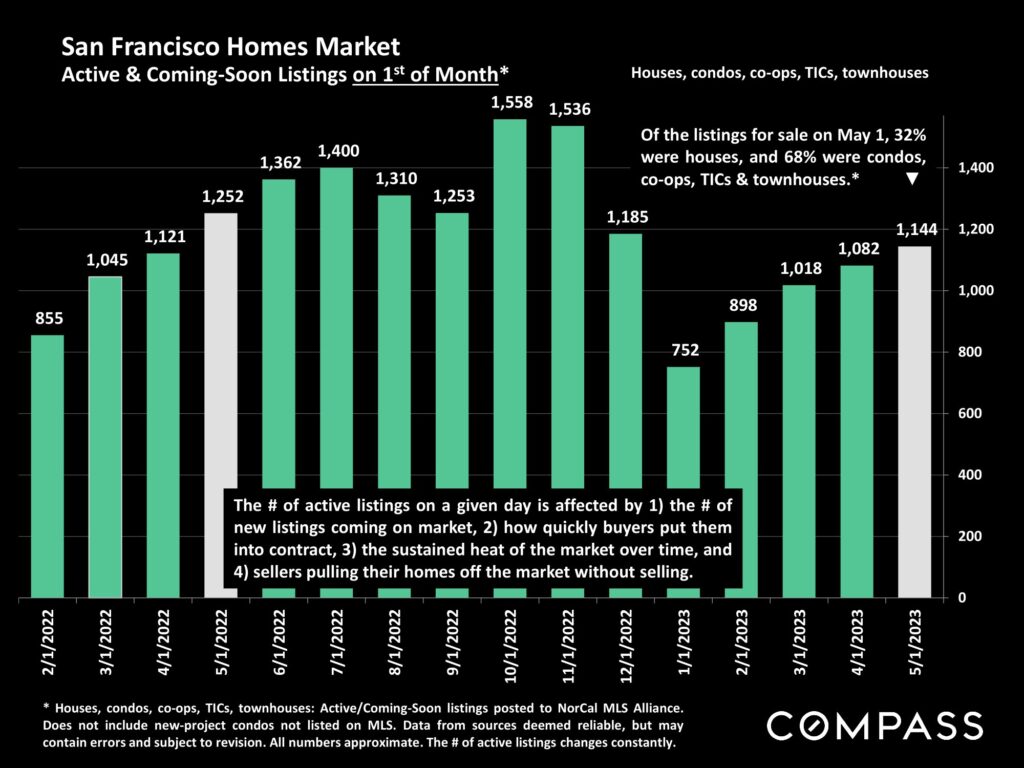
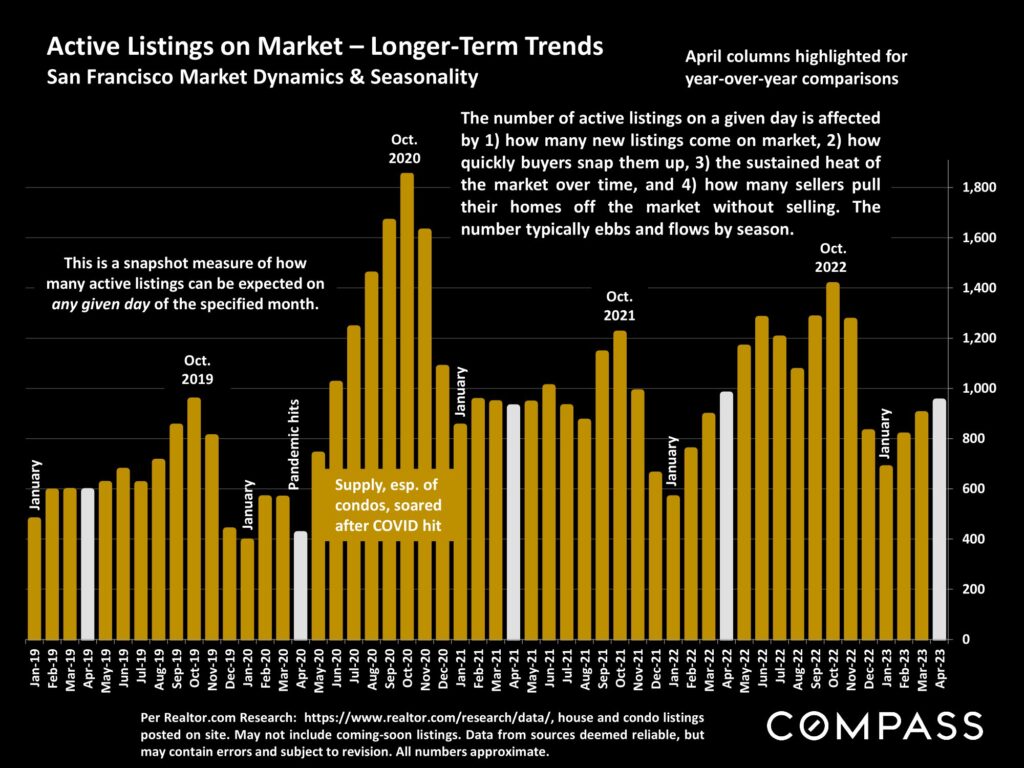
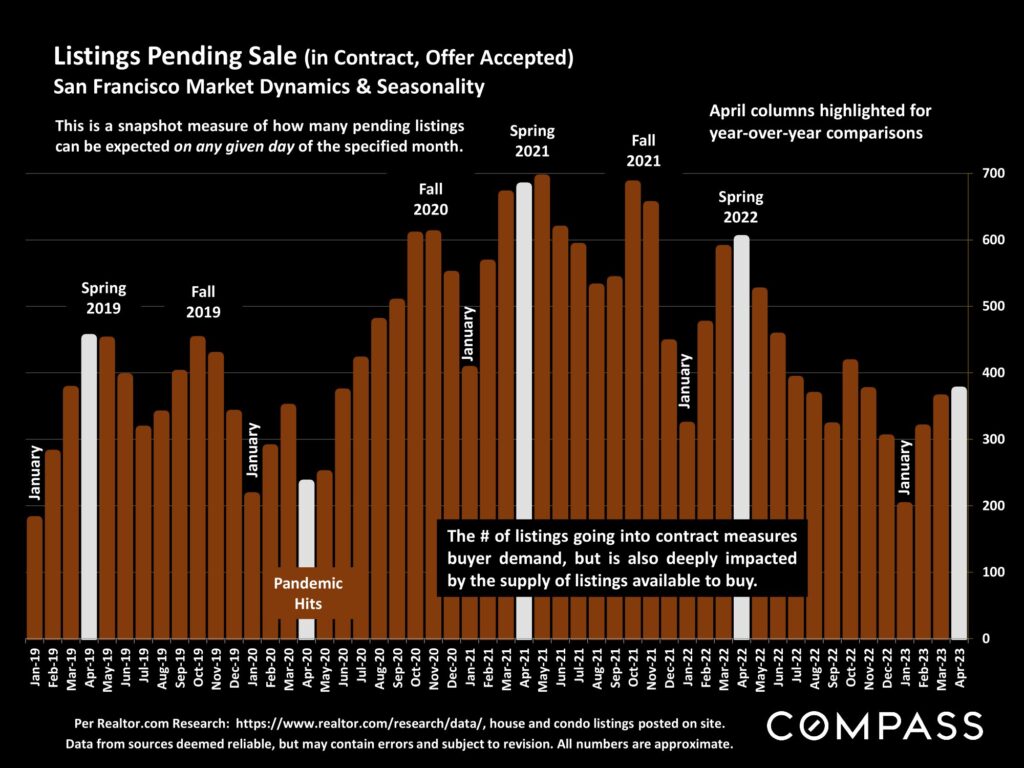
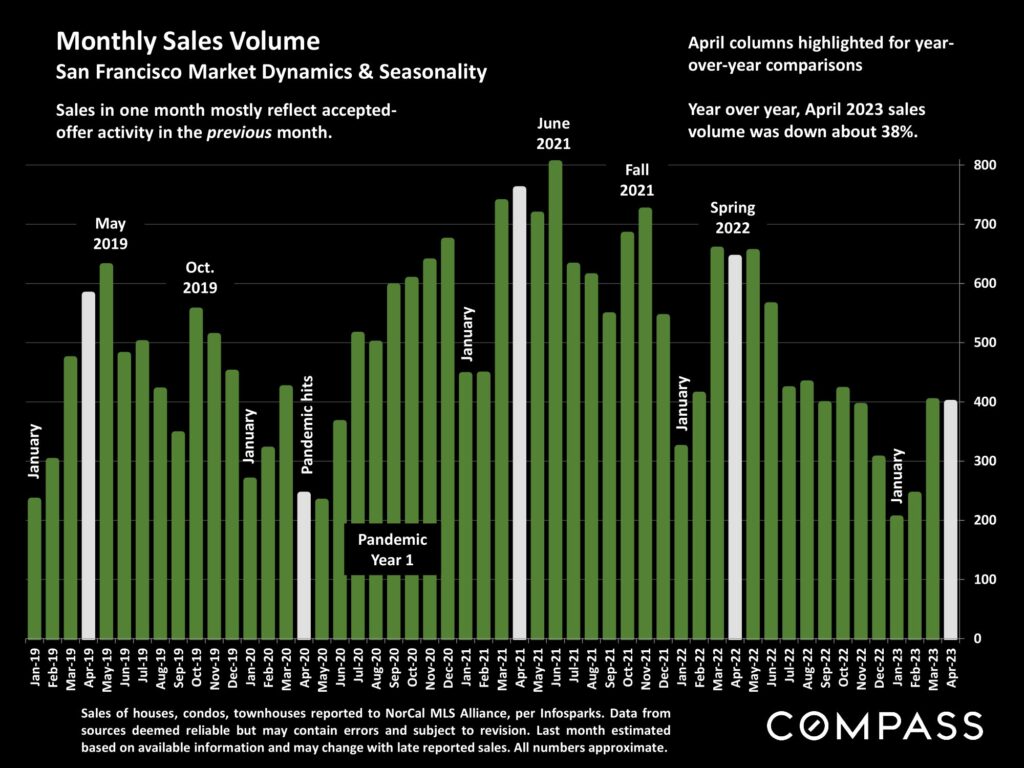
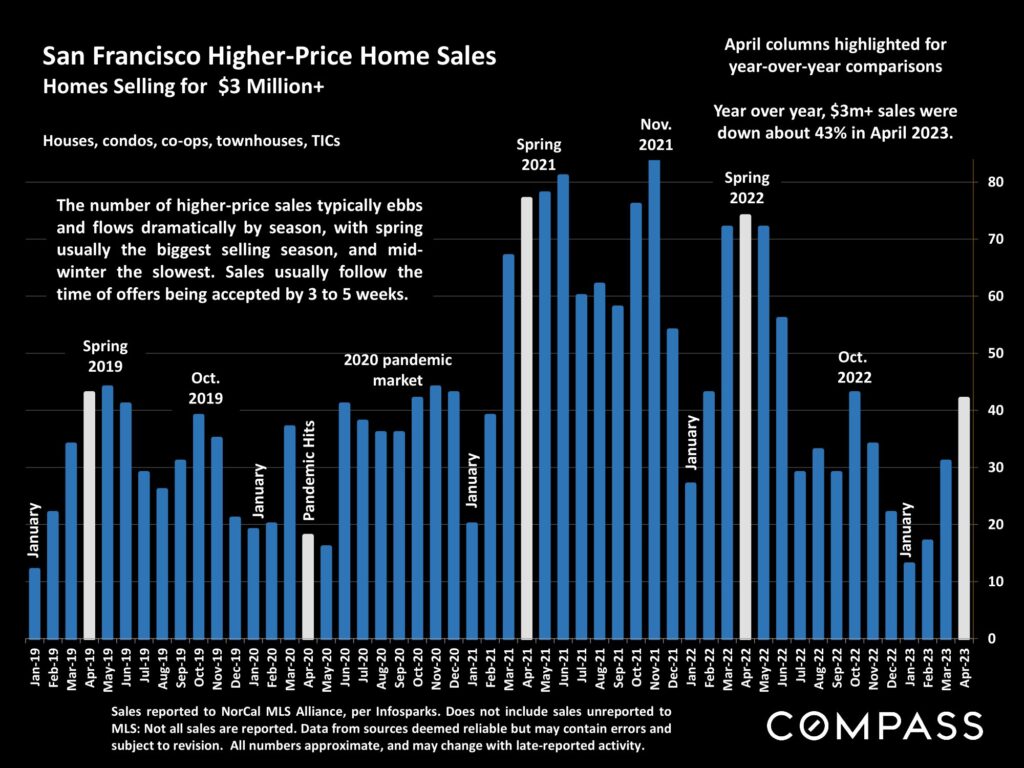
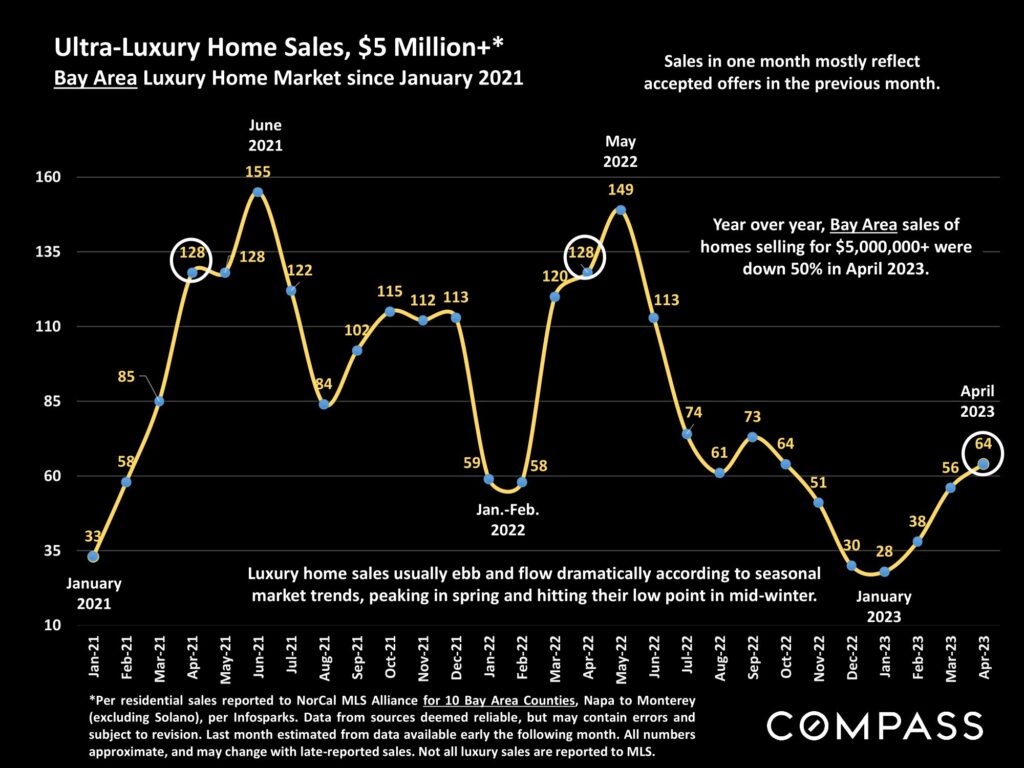
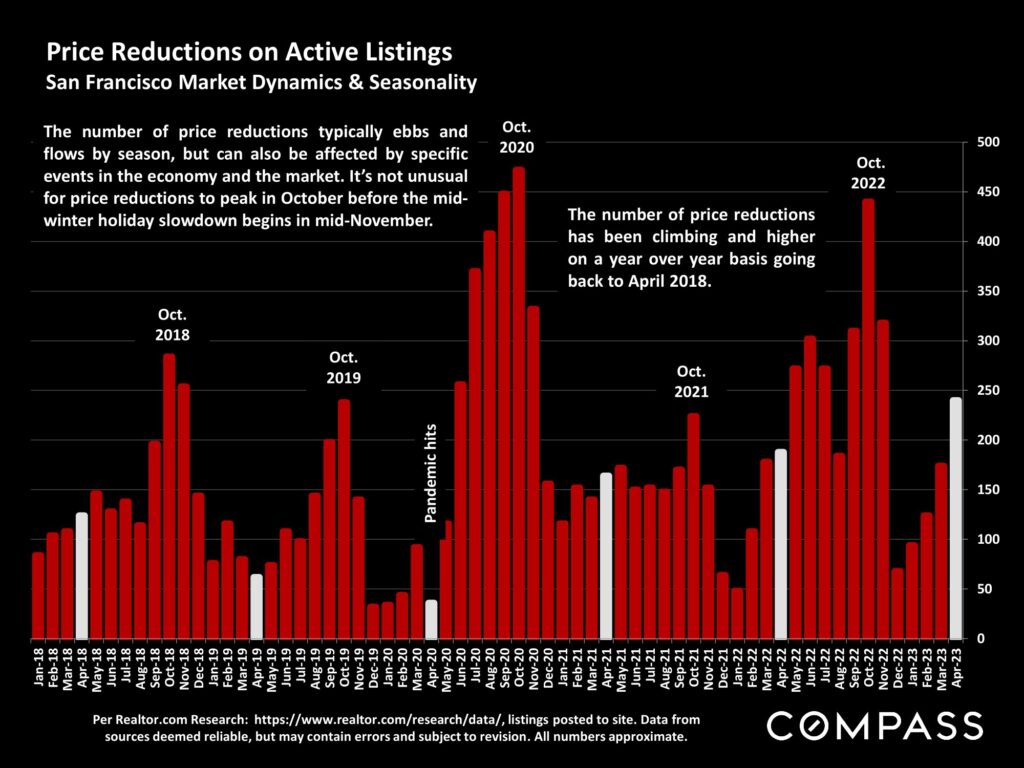
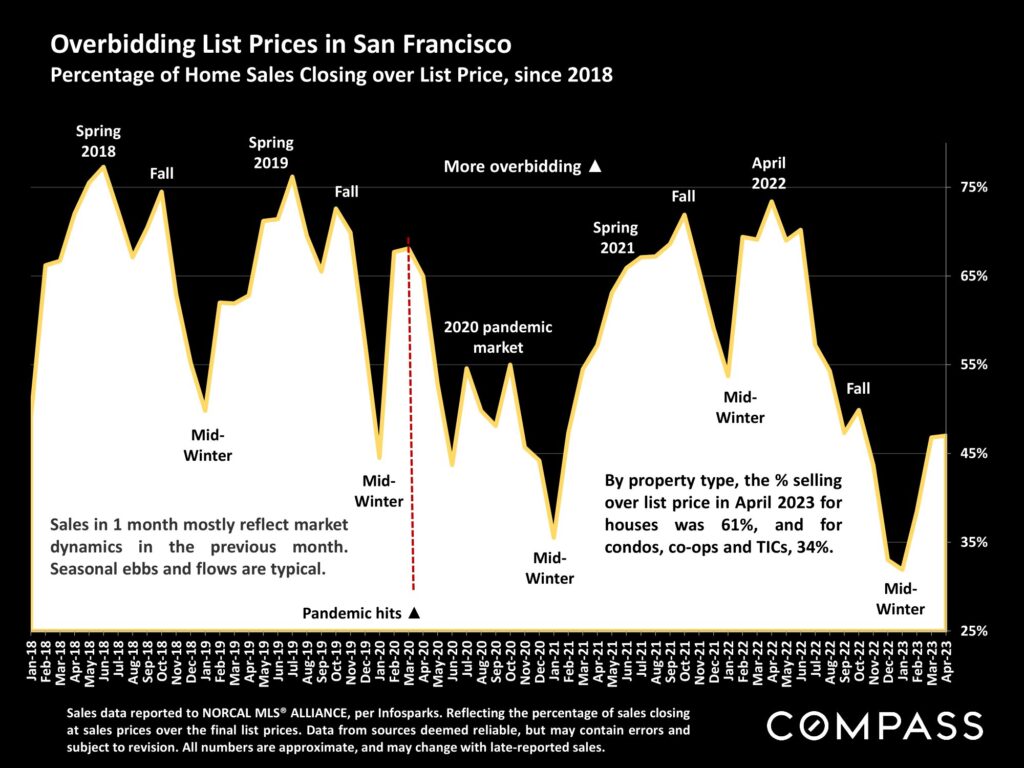
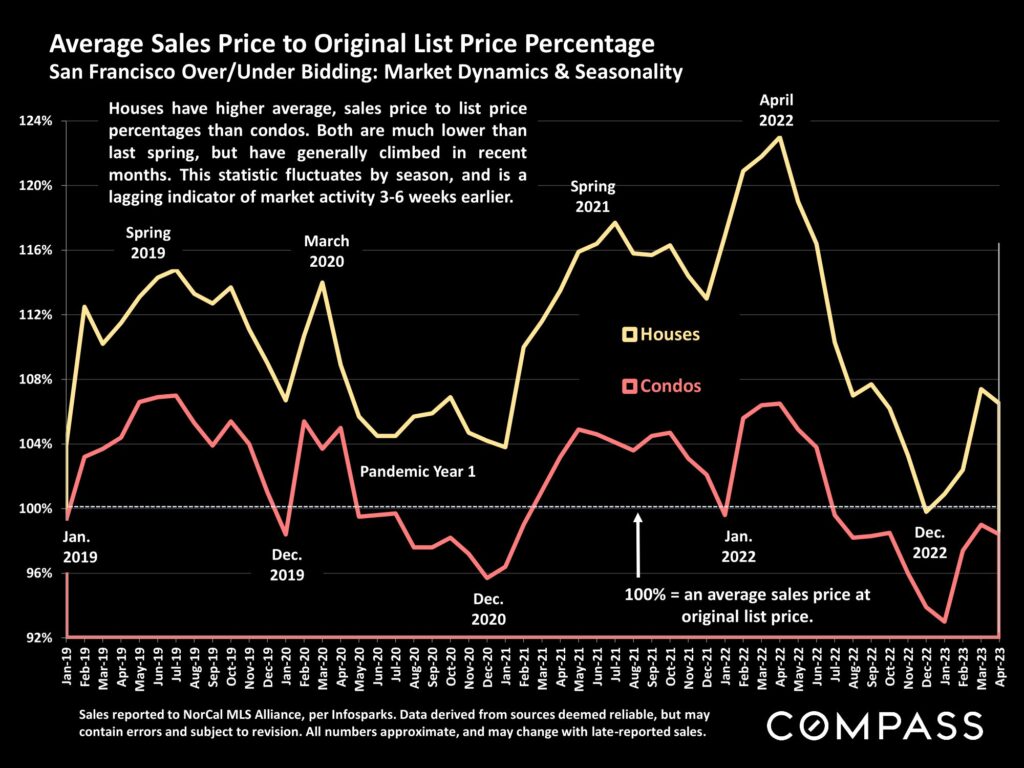
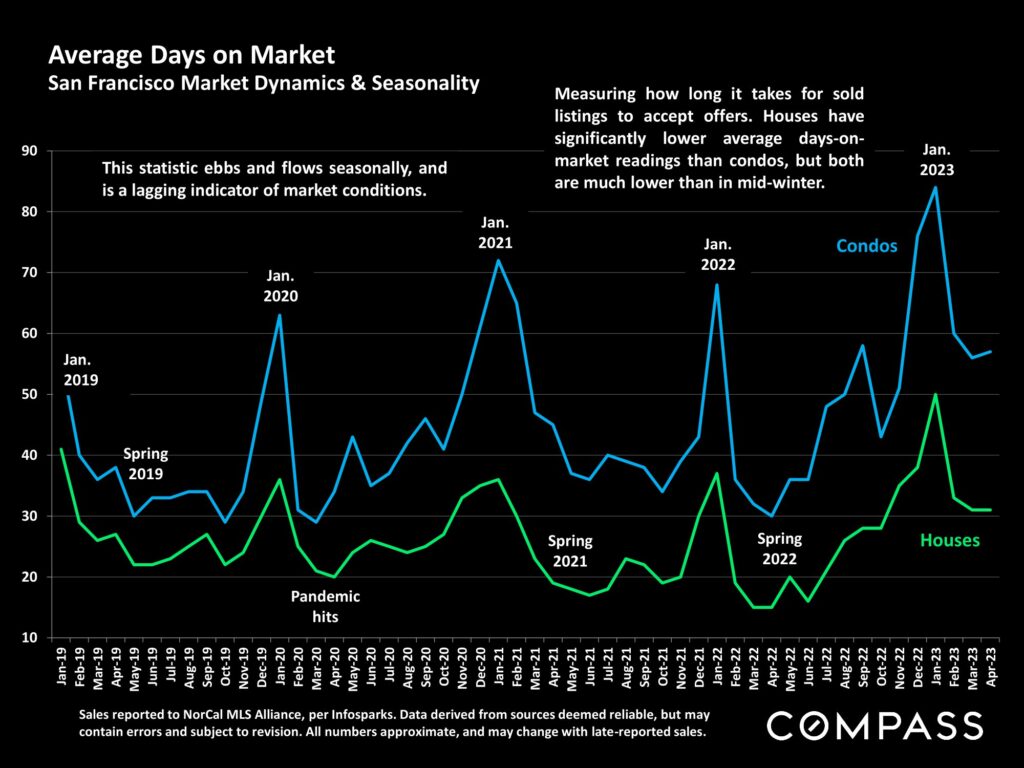
Statistics are generalities, essentially summaries of widely disparate data generated by dozens, hundreds or thousands of
unique, individual sales occurring within different time periods. They are best seen not as precise measurements, but as broad,
comparative indicators, with reasonable margins of error. Anomalous fluctuations in statistics are not uncommon, especially in
smaller, expensive market segments. Last period data should be considered estimates that may change with late-reported
data. Different analytics programs sometimes define statistics – such as “active listings,” “days on market,” and “months supply
of inventory” – differently: what is most meaningful are not specific calculations but the trends they illustrate. Most listing and
sales data derives from the local or regional multi-listing service (MLS) of the area specified in the analysis, but not all listings
or sales are reported to MLS and these won’t be reflected in the data. “Homes” signifies real-property, single-household
housing units: houses, condos, co-ops, townhouses, duets and TICs (but not mobile homes), as applicable to each market.
City/town names refer specifically to the named cities and towns, unless otherwise delineated. Multi-county metro areas will
be specified as such. Data from sources deemed reliable, but may contain errors and subject to revision. All numbers to be
considered approximate.
Many aspects of value cannot be adequately reflected in median and average statistics: curb appeal, age, condition, amenities,
views, lot size, quality of outdoor space, “bonus” rooms, additional parking, quality of location within the neighborhood, and
so on. How any of these statistics apply to any particular home is unknown without a specific comparative market analysis.
Median Sales Price is that price at which half the properties sold for more and half for less. It may be affected by seasonality,
“unusual” events, or changes in inventory and buying trends, as well as by changes in fair market value. The median sales price
for an area will often conceal an enormous variety of sales prices in the underlying individual sales.
Dollar per Square Foot is based upon the home’s interior living space and does not include garages, unfinished attics and
basements, rooms built without permit, patios, decks or yards (though all those can add value to a home). These figures are
usually derived from appraisals or tax records, but are sometimes unreliable (especially for older homes) or unreported
altogether. The calculation can only be made on those home sales that reported square footage.
Compass is a real estate broker licensed by the State of California, DRE 01527235. Equal Housing Opportunity. This report has been
prepared solely for information purposes. The information herein is based on or derived from information generally available to the
public and/or from sources believed to be reliable. No representation or warranty can be given with respect to the accuracy or
completeness of the information. Compass disclaims any and all liability relating to this report, including without limitation any express or
implied representations or warranties for statements contained in, and omissions from, the report. Nothing contained herein is intended
to be or should be read as any regulatory, legal, tax, accounting or other advice and Compass does not provide such advice. All
opinions are subject to change without notice. Compass makes no representation regarding the accuracy of any statements regarding
any references to the laws, statutes or regulations of any state are those of the author(s). Past performance is no guarantee of future
results.

